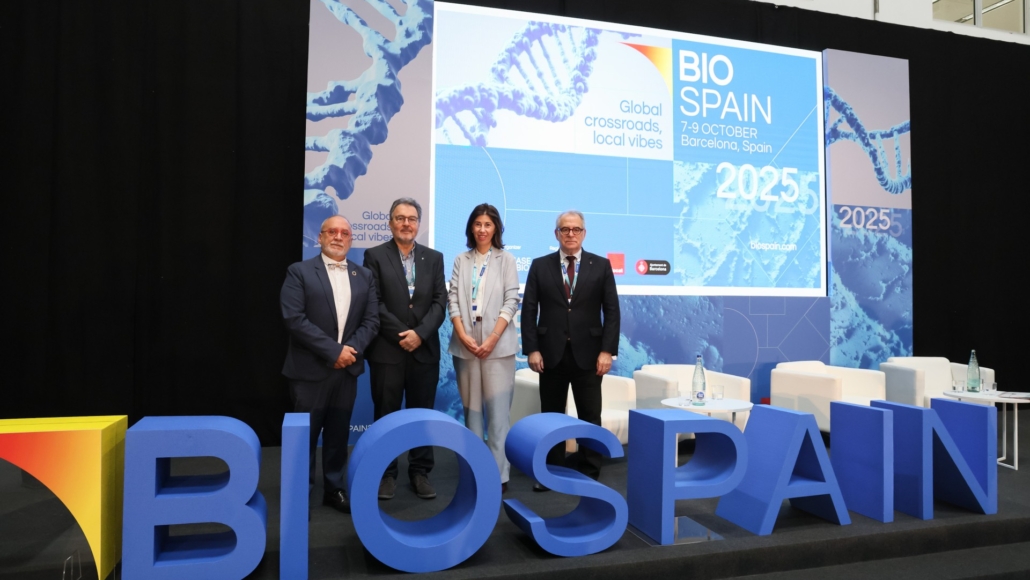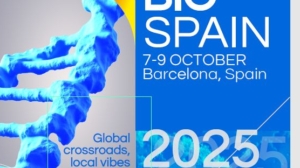
BioSpain 2025 starts with new records
BioSpain 2025 opened in Barcelona, the capital of Catalonia, setting a new record for both visitors and exhibitors. During the inauguration, representatives from government and industry highlighted the leading role of biotechnology in building economic and environmental resilience in Spain and across the European Union.
With 2.400 visitors (2023: 2,200) and 250 exhibitors (2023: 2100 participants, including 975 biotech companies and 220 exhibitors), the event reported record numbers from the very start. Organised by AseBio and Biocat, Spain’s leading biotech cluster, in collaboration with the Government of Catalonia and the Barcelona City Council, the conference underscored biotechnology’s strategic role in strengthening resilience in an increasingly tense global geopolitical environment.
According to Rocío Arroyo, CEO of liquid biospsy company Amadix and President of AseBio, biotechnology has evolved over the past decade from an emerging technology into a consolidated strategic global asset, representing a market worth over one billion euros in Spain with steady, sustainable growth. She emphasised that its capacity to transform key sectors such as health, agriculture, energy, and the environment makes biotechnology an essential tool for addressing structural challenges including food security, the energy transition, industrial transformation, and the fight against climate change.
In her opening speech, Arroyo underlined Catalonia’s status as one of Europe’s strongest life sciences hubs. According to AseBio’s annual study on the biotechnology sector, Catalonia led the country in the number of biotech companies, accounting for over 24% of all firms and surpassing 35% of total national revenue. The region boasts the highest average revenue per company in a strategic sector for the Spanish economy, contributing 1.26% to the GDP. Arroyo welcomed the numerous international delegations attending this year’s edition, with Switzerland as the partner country. “BioSpain is much more than a conference programme,” she said. “It is a meeting point for investors, innovative biotech SMEs and researchers.”
Juan Cruz Cigudosa, Secretary of State for Research, Development and Innovation, highlighted biotechnology’s potential to shape the future of food security, energy, and industrial production. He noted that Spain’s biotech sector continues to expand rapidly, with 67 new companies founded in the past year. “Biotechnology is one of the pillars of industrial growth,” he stated. “We are proud of what Spain has achieved so far, but we need to accelerate technology transfer.”
According to Antoni Plasencia i Taradach, Director General for Research and Innovation at the Catalan Department of Health, €407m in R&D funding was invested in Catalonia in 2024, supporting 20 research and innovation centres. He stressed that international collaboration is crucial to preserving Europe’s resilience and technological independence in an increasingly volatile global landscape. Jordi Callís Riera, Fourth Deputy Mayor of Barcelona for Economy, Finance, Economic Promotion and Tourism, added that Catalonia contributed 8% to Spain’s GDP last year.
The AseBio Annual Report 2024 reflects the sector’s strong momentum: 66 new biotech companies were founded in 2024, bringing the total to 1,074; over 129 new products reached the market; and funding operations increased by 26%, reaching €181 million. Human health remains the main area of activity for Spanish biotech firms (58%), followed by food (27%; 2023: 39%), agriculture and forestry (16%), animal health and aquaculture (16%), environmental biotechnology (15%), and industrial biotechnology (10%). For the third consecutive year, Spain ranks third in clinical trial activity, according to the German pharmaceutical industry association vfa.
In it Arroyo concludes that the century of biotechnology has only just begun. Spain is well positioned to make biotechnology one of the driving forces of its leadership in innovation and industrial sovereignty.
BioSpain was visited by 175 investors who watched 43 start-up pitches from different sectors and discussed the impact of the latest geopolitical tensions.


 AseBio
AseBio adobe stock photos - ndomble
adobe stock photos - ndomble 